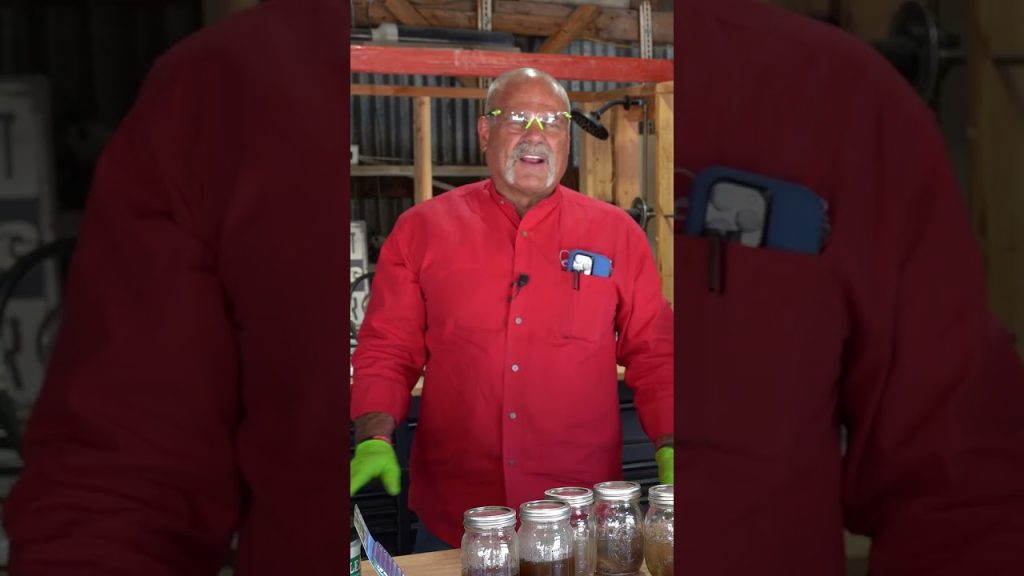Curious about which drain cleaner is actually effective at dissolving pesky hair clogs? In this video by Roger Wakefield, we embark on an intriguing experiment as he tests seven different drain cleaners to see how well they tackle the challenge. From well-known brands like Drano and Liquid Plumber to the lesser-known Green Gobbler, this fascinating investigation uncovers the true hair-eating power of each cleaner. As the video unfolds, we witness the smoke emitting from one cleaner and learn about the precautions Roger takes to avoid inhaling the potent chemicals. Although the results may not be what you expect, this hair-focused drain cleaner analysis leaves us both astonished and hungry for more!
Ever wondered whether drain cleaners can truly dissolve hair? Roger Wakefield, in his riveting video, sets out to answer this burning question by testing a selection of seven different drain cleaners. As the experiment progresses, Roger skeptically evaluates the effectiveness of each cleaner, providing his humorous commentary along the way. From the lackluster performance of some to the surprising prowess of others, this hair-dissolving journey in the world of drain cleaners will leave you both amused and eager to find out which one comes out on top. Stay tuned for the thrilling conclusion of this hair-raising investigation!
Overview
Selecting the right drain cleaner for hair clogs is crucial in maintaining smooth and efficient drains. Hair clogs are a common issue in households, and they can lead to slow drainage or even complete blockages if left untreated. In this article, we will explore the importance of selecting the appropriate drain cleaner for hair clogs, discuss the factors to consider when making a choice, and compare the different types of drain cleaners available in the market. We will also highlight some popular drain cleaners known for their effectiveness in dissolving hair clogs.
Introduction to hair clogs in drains
Hair clogs are one of the most prevalent types of clogs that can occur in drains. As we go about our daily routines, strands of hair inevitably find their way into our drains, especially in the bathroom. Over time, these hair strands can accumulate and mix with soap residue, forming clumps that can obstruct the flow of water through the pipes. Hair clogs can lead to slow drains, foul odors, and even complete blockages if not addressed promptly. To prevent these issues, it is essential to select the right drain cleaner specifically designed to dissolve hair clogs effectively.

Importance of selecting the right drain cleaner for hair clogs
Choosing the right drain cleaner for hair clogs can make a significant difference in resolving the issue efficiently. Using the wrong product may not only prove ineffective in clearing the clog, but it can also potentially damage the pipes or create hazardous chemical reactions. Therefore, it is crucial to understand the factors to consider when selecting a drain cleaner for hair clogs.
Factors to consider when choosing a drain cleaner for hair clogs
Type of drain cleaner
There are several different types of drain cleaners available in the market. The choice depends on personal preference and the severity of the hair clog. The three primary types of drain cleaners commonly used for hair clogs include chemical drain cleaners, enzymatic drain cleaners, and bacterial drain cleaners.
Ingredients
When selecting a drain cleaner for hair clogs, it is essential to examine the ingredients. Some drain cleaners contain harsh chemicals that can damage pipes or pose health risks. Opting for drain cleaners with milder yet effective ingredients can ensure the safety of both the user and the plumbing system.
Effectiveness
The effectiveness of a drain cleaner in dissolving hair clogs is a crucial factor to consider. Reading product reviews, seeking recommendations, or conducting personal tests can help determine the product’s ability to effectively remove hair clogs.
Safety precautions
Using drain cleaners requires handling potentially hazardous substances. It is important to follow safety precautions outlined on the product packaging, such as wearing gloves and eye protection, ensuring proper ventilation, and preventing contact with the skin or ingestion of the product.

Types of drain cleaners
Chemical drain cleaners
Chemical drain cleaners are the most common type available in stores. They work by releasing chemicals that react with the hair and dissolve it. These drain cleaners typically contain ingredients such as sodium hydroxide or sulfuric acid.
Enzymatic drain cleaners
Enzymatic drain cleaners, on the other hand, use a different approach to dissolve hair clogs. They contain enzymes that break down organic matter, including hair, into smaller particles that can be washed away by water.
Bacterial drain cleaners
Bacterial drain cleaners utilize specific strains of bacteria that produce enzymes capable of breaking down organic materials, including hair. These bacteria consume the gunk in the drain, effectively clearing the clog.
Chemical drain cleaners
How do they work?
Chemical drain cleaners work by creating a chemical reaction with the substances causing the clog. The active ingredients, such as sodium hydroxide or sulfuric acid, generate heat and gas, which helps dissolve the hair and break apart the clog.
Effectiveness on hair clogs
Chemical drain cleaners are generally effective on hair clogs, as the chemicals used can liquefy or break down the hair strands. However, the effectiveness may vary depending on the severity of the clog and the specific product used. In some cases, multiple applications or physical removal of the hair may be necessary.
Safety considerations
Chemical drain cleaners can be dangerous if mishandled or used improperly. The chemicals can cause chemical burns, emit toxic fumes, and damage pipes if left in contact for too long. It is important to carefully follow the instructions, use protective gear, and avoid mixing different drain cleaners or using them alongside other cleaning chemicals.

Enzymatic drain cleaners
How do they work?
Enzymatic drain cleaners use enzymes to break down organic matter, including hair, into smaller particles that can be easily flushed away. These enzymes catalyze the decomposition process, effectively dissolving the hair clog without causing any damage to the pipes.
Effectiveness on hair clogs
Enzymatic drain cleaners are specifically formulated to target organic materials like hair. They are generally effective in dissolving hair clogs, but their effectiveness may vary depending on the specific product and the severity of the clog. Some enzymatic drain cleaners may require overnight application or repeated use for optimal results.
Safety considerations
Enzymatic drain cleaners are generally considered safer than chemical drain cleaners. However, it is still important to read and follow the instructions on the product packaging to ensure safe usage. It is also advisable to use protective gear, especially when handling concentrated enzyme solutions.
Bacterial drain cleaners
How do they work?
Bacterial drain cleaners introduce specific strains of bacteria into the drain. These bacteria produce enzymes that break down the organic matter, including hair, into smaller particles, allowing for easy removal through water flow.
Effectiveness on hair clogs
Bacterial drain cleaners can be highly effective on hair clogs, especially when used regularly. The bacteria continuously break down the organic material, preventing the buildup of new clogs. However, they may take longer to show results compared to chemical or enzymatic drain cleaners.
Safety considerations
Bacterial drain cleaners are generally considered safe for both users and plumbing systems. However, it is essential to handle the product according to the instructions and store it properly to maintain the viability of the bacteria.

Popular drain cleaners for dissolving hair clogs
Drano
Drano is a well-known brand of drain cleaner that offers several products specifically formulated for hair clogs. Their chemical-based drain cleaners are designed to effectively dissolve hair and other common clogs. It is important to read the instructions carefully and follow the safety precautions when using Drano products.
Liquid Plumber
Liquid Plumber is another popular brand that offers a range of drain cleaners suitable for hair clogs. Their products use various active ingredients, including chemicals and enzymes, to dissolve hair and clear drains. It is recommended to choose the appropriate Liquid Plumber product based on the severity of the clog and the type of drain.
Green Gobbler
Green Gobbler is a brand that focuses on producing environmentally friendly drain cleaners. Their products use a combination of enzymes and biodegradable ingredients to dissolve hair clogs effectively. Green Gobbler provides an alternative for individuals looking for drain cleaners that are safe for both their plumbing system and the environment.
Conclusion
Selecting the right drain cleaner for hair clogs is crucial in maintaining proper drainage and preventing blockages. Considering the type of drain cleaner, its ingredients, effectiveness, and safety precautions are important factors to ensure optimal results and protect both the plumbing system and the user. Chemical, enzymatic, and bacterial drain cleaners all have their own advantages and considerations. Popular brands like Drano, Liquid Plumber, and Green Gobbler offer a range of products designed to dissolve hair clogs effectively. By choosing the appropriate drain cleaner and following safe usage practices, we can keep our drains clear and functioning smoothly, ensuring a hassle-free plumbing experience.


